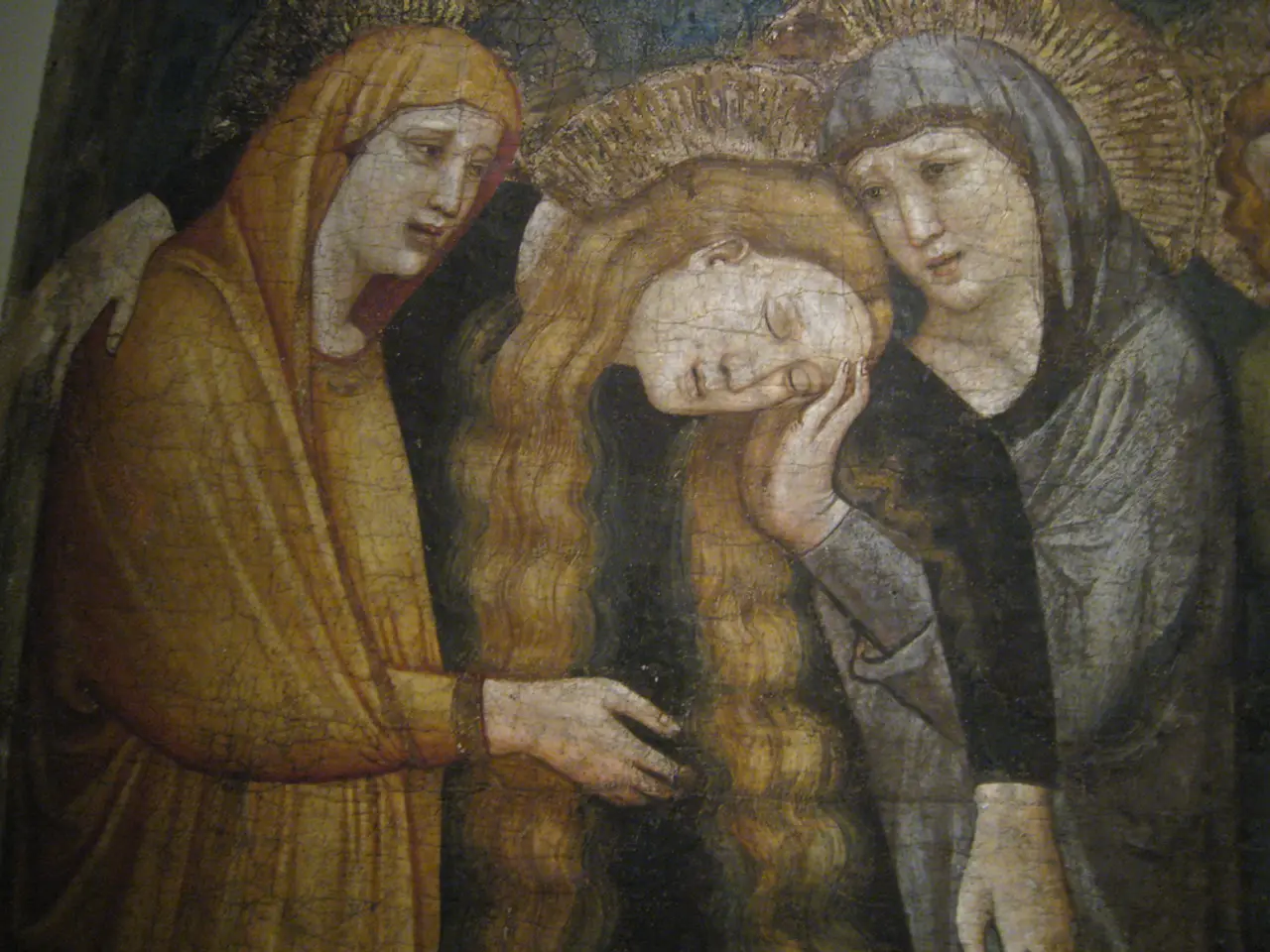Art transforms harmony in Bukhara's community: the Biennale alters traditional norms
The Bukhara Biennale, taking place from September 5 to November 20, is a vibrant celebration of contemporary art in Uzbekistan. Curated by Diana Campbell, the event features over 70 site-specific projects, each a result of collaboration between local artisans and artists.
Uzbekistan, a young nation with over 60% of its population under 35, is home to a burgeoning art scene. The Biennale works with emerging Uzbek artists, providing them with the opportunity to create new work and showcase it both locally and internationally, in places like India and Korea.
The title of the Biennale, "Recipes for Broken Hearts (Recipes for Broken Hearts)", is inspired by a legend about Ibn Sina and a broken-hearted prince. Ibn Sina, a renowned polymath, is said to have invented plov, Uzbekistan's national rice dish, as a recipe to heal a broken heart. This metaphorical exploration of emotional healing through culture, tradition, and collective care is central to the Biennale's ethos.
The Biennale is not just about visual art. It includes architecture-inspired installations, performances, poetry, and culinary experiences. Food, in particular, is used as an emotional medium by the artists to explore themes of longing for the taste of home and the role of food in building unity.
The Korean community in Uzbekistan, forcibly relocated by Stalin, uses Uzbek carrots like cabbage in their recipes, adding a unique twist to the culinary experiences offered at the Biennale. The Biennale also works with Jeong Kwan, a monk chef from Korea, to examine the role of food, spirituality, and healing.
The Biennale is more than just an art event. It is a public event that animates the public space of Bukhara, making it accessible to everyone. The Biennale is also unique in its mission to restore a city through art, with a focus on empowering artisans and elevating their skills and ideas.
The Biennale's vision, shared by Gayane Umerova, commissioner and president of the Foundation for the Development of Art and Culture of Uzbekistan, and architect Wael al Awar, aims to dismantle hierarchies and embrace Uzbekistan's recognition of craftsmanship and culinary arts as art forms. The Biennale seeks to increase the diversity of who is heard, read, and cited in the art world, particularly in relation to Central Asian history.
Coinciding with other major art events such as Frieze Seoul and the Istanbul Biennale, the Bukhara Biennale offers an exciting opportunity for art enthusiasts to travel and immerse themselves in a rich cultural experience. The Bukhara Biennale is a testament to the power of art and culture in healing and uniting individuals and communities.
[1] The Art Newspaper. (2022). Bukhara Biennale announces programme for 2022. [online] Available at: https://www.theartnewspaper.com/news/bukhara-biennale-announces-programme-for-2022
[2] Hyperallergic. (2022). The Bukhara Biennale Aims to Redefine Art in Central Asia. [online] Available at: https://hyperallergic.com/707716/the-bukhara-biennale-aims-to-redefine-art-in-central-asia/
- The Bukhara Biennale, with its emphasis on global cuisines and cultural travel, offers visitors a unique opportunity to embark on a journey that not only celebrates contemporary art but also explores the role of food in building unity and emotional healing through various Central Asian traditions.
- As part of the Biennale's commitment to showcasing emerging Uzbek artists, the event takes its beacon of light beyond the local community, illuminating food-and-drink scenes in India and Korea with their unique blends of Uzbek and Korean flavors, symbolizing the intersection of international cooking and lifestyle.
- Recognizing the significance of food as a cultural pillar, the Bukhara Biennale collaborates with Jeong Kwan, a renowned monk chef, to explore the spiritual connections between food, healing, and art, embracing a global dialogue on the values of cultural travel and its impact on redefining art in Central Asia.




